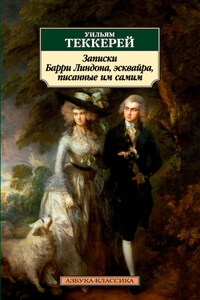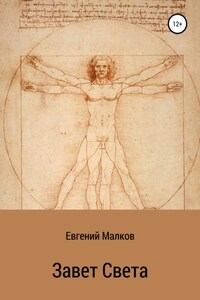"The 8.45 for London, miss? Just gone. Gone two or three minutes. It's the last train up to town this evening, miss. First in the morning at 6.15, miss."
"Gone!" cried the girl in despair. She reached out her hand and caught one of the wooden pillars supporting the roof of the little station at Millway, near the south-east coast of England.
"Yes, miss, gone," said the porter. He was inclined to be very civil and communicative, for the last train for London had left, the enquirer seemed in great distress, and she was young and beautiful. "Any luggage, miss? If you have you can leave it in the cloak-room till the first train to-morrow. The first train leaves here at a quarter past six."
She did not speak. She looked up and down the platform, with dazed, bewildered eyes. Her lips were drawn back and slightly parted. She still kept her hand on the wooden pillar. She seemed more afraid of becoming weak than in a state of present weakness.
The porter, who was young and good-looking, and a very great admirer of female charms, thought the girl was growing faint. He said: "If you like, miss, you can sit down in the waiting-room and rest there."
She turned her eyes upon him without appearing to see him, and shook her head in mechanical refusal of his suggestion. She had no fear of fainting. For a moment her mental powers were prostrated, but her physical force was in no danger of giving way. With a start and a shiver, she recovered enough presence of mind to realize her position on the platform, and the appearance she must be making in the eyes of the polite and well-disposed railway porter.
"Thank you, I have no luggage-with me." She looked around apprehensively, as though dreading pursuit.
"Would you like me to call a fly for you, miss?"
"No. Oh, no!" she cried, starting back from him in alarm. Then seeing the man retire a pace with a look of surprise and disappointment, she added hastily, "I do not want a cab, thank you. It is most unfortunate that I missed the train. Is it raining still?"
"Yes, miss; heavy."
From where she stood she could have seen the rain falling on the metals and ballast of the line; she was absolutely looking through the rain as she asked the question, but she was in that half-awakened condition when one asks questions and hears answers without interest in the one or attention to the other. She knew heavy summer rain was falling and had been falling for more than an hour; she knew that she had walked two miles through the rain with only a light summer cloak and small umbrella to protect her from it, and she knew that she could not use a cab or fly for two reasons; first, she could not spare the money; second, she durst not drive back, if back she must go, for she must return unperceived. When she thought of getting back, and the reason for concealment, an expression of disgust came over her face, and she shuddered as one shudders at a loathsome sight unexpectedly encountered.
The porter lingered in the hope of being of use. He had no mercenary motive. He wanted merely to remain as long as possible near this beautiful girl. He would have done any service he could for her merely that he might come and go near where she stood, within the magic radius of her eyes. Even railway porters, when they are in quiet stations, are no more than other men in the presence of the beauty of woman.
It was almost dark now. Nine o'clock had struck. The straight warm rain was falling through the dusky, windless air. It was an evening towards the end of June-the last Wednesday of that month. There was not a sound but the dull muffling beat of the rain upon the roof. Not a soul visible but the girl and porter.
She took her hand away from the wooden pillar, and gathered her cloak round her, in preparation for going.
"Can I do anything for you, miss? Have you far to walk?" asked the man. Offering service was the nearest thing he could do to rendering service.
She did not answer his question; she asked instead: "Do you think the rain will stop soon?"
He glanced at the thin line of dull, dark, leaden sky, visible from where he stood at a low angle between the roofs of the platform. "No, miss, I don't think it will. It looks as if 'twould rain all night." If she had been a plain girl of the dumpy order, or his own degree, he would have tried to make himself agreeable by prophesying pleasant things. But the high privilege of answering so exquisitely beautiful a young lady demanded a sacrifice of some kind, and he laid aside his desire to be considered an agreeable fellow, and said what he believed to be the truth.
She sighed, moved her shoulders under the cloak to settle it, and saying "Thank you," in a listless, half-awake way, moved with down dropped eyes and drooping head, slowly out of the station, raised her umbrella and, turning sharply to the left, walked through the little town of Millway and under the huge beeches of a broad, deserted road leading southward.
The trees above her head were heavy with leaves, the road was very dim, almost dark, this night of midsummer. The perpendicular rain fell unseen through the mute warm evening. A thick perfume of multitudinous roses made the soft air heavy with richness. No sound reached the young girl but the faint clatter of the rain upon the viewless leaves overhead, the pit and splash of the huge drops from the leaves close to her feet, and the wide, even, incessant dull drumming of the shower upon the trees, looming dimly abroad in the vapourous azure dusk of the dark.














